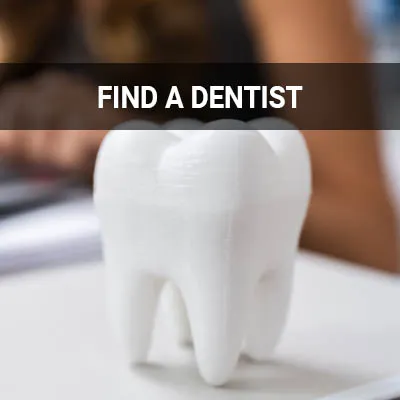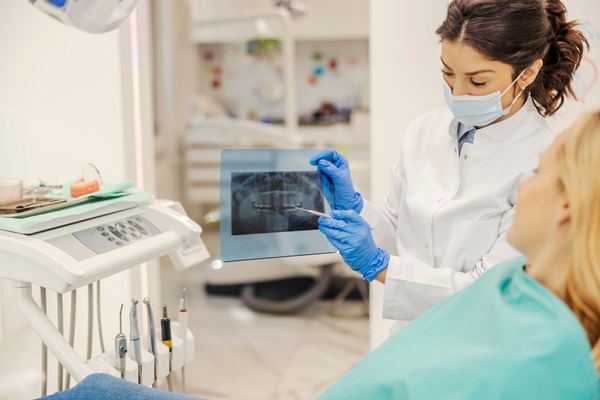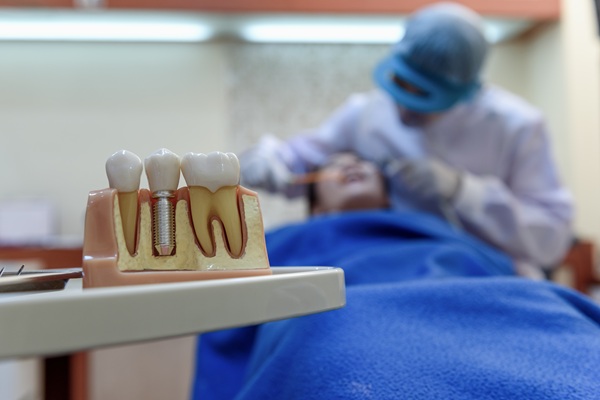Dental Procedures Modesto, CA
Dental procedures involve all procedures and treatments that are not considered or performed routinely. Routine procedures include examinations and professional cleanings, along with a few treatments for functional purposes. Dental procedures cover many aesthetic and functional treatments, from basic fillings to tooth replacements and extractions.
Various dental procedures are available at Great Smiles Dental in Modesto and the surrounding area. We can help you achieve and maintain a healthy smile by treating conditions as soon as they arise. Call us today at (209) 222-3636 to schedule an appointment or learn more about our services.
Who Needs Treatment
Keeping up with routine dental procedures is integral to maintaining one's oral health. Doing so can also help patients and their dentists catch any forming problems that require more involved attention. Patients may require various dental procedures (such as dental fillings, dental crowns, root canals, tooth replacements, root scaling and planing, and tooth extractions) if they are dealing with tooth decay, tooth damage, or gum disease. Many different factors can cause tooth damage, such as teeth grinding (bruxism) or trauma. Our qualified team works closely with our patients to provide them the best, individualized treatment plan.
“Patients may require various dental procedures … if they are dealing with tooth decay, tooth damage, or gum disease.”
Composite and Fillings
Tooth fillings are primarily done to remove decay and fill a space immediately to prevent the further spread of bacteria to surrounding teeth, gums, and bone. They are also used to restore or repair cracked, chipped, or broken teeth. Typically, we will administer a local anesthetic to keep the patient comfortable during treatment. Then, we remove the decay using a drill, air abrasion tool, or laser and fill the empty space with the filling material. Lastly, we use a special light to bond the material to the tooth until it hardens.
There are several types of filling materials used in dentistry, including gold, porcelain, silver amalgam (mercury mixed with silver, tin, zinc, and copper), tooth-colored, plastic, and composite resin fillings. Each of these comes with specific advantages and disadvantages, costs, and longevity. We will determine the most effective type of filling material by the amount of decay present. We can also consider using tooth-colored resin to match the rest of the mouth.
“Tooth fillings are primarily done to remove decay and fill a space immediately to prevent further spread of bacteria to surrounding teeth, gums, and bone.”
Dental Crowns and Dental Bridges and Root Canals
Dental crowns are tooth-colored caps used as a tooth replacement option for patients with damaged or weak teeth. They are most common after a root canal treatment since removing a good amount of natural tooth structure during the procedure is necessary. Crowns can consist of various dental materials, including porcelain, ceramic, zirconia, metal, and composite resin. The type of material used depends on many factors, including:
- How much natural tooth is remaining
- How much of the tooth will show when smiling
- The color of the surrounding teeth
- The function of the tooth that needs the crown
- The location of the tooth
- The position of gum tissue
Root canal treatment involves removing inflamed or decayed tooth roots from an infected pulp. They are often a result of facial or dental trauma, severely decayed teeth, frequent dental treatment, faulty or dysfunctional crowns, and damaged (chipped, cracked, or broken) teeth. In most cases, we will restore the tooth with a filling or crown after a root canal procedure.
“Dental crowns are tooth-colored caps used as a tooth replacement option for patients with damaged or weak teeth.”
Check out what others are saying about our dental services on Yelp: Dental Procedures in Modesto, CA
Tooth Replacement & Root Scaling and Planing
Replacing missing teeth is more than just an aesthetic matter. Over time, gaps in between teeth may negatively impact a patient's speech, eating, bite, and facial appearance. From trauma, decay, or genetic conditions, there are many different reasons a patient may be missing a tooth. Fortunately, effective replacement options are available. Some of the most common include dental implants, fixed dental bridges, and removable partial dentures. Our team works closely with our patients to determine which tooth replacement option is best for them.
Untreated gum disease often precipitates tooth loss. When it comes to treating this condition, early detection is key. As long as the disease has not yet reached the structures below the gum line, a root scaling and planing (also known as a deep tooth cleaning) may be able to reverse its effects. The procedure consists of the dentist removing all the plaque and tartar both above and below the gum line, then smoothing out the patient's teeth roots to assist the gums in reattaching to the teeth.
“Over time, gaps in between teeth may negatively impact a patient’s speech, eating, bite, and facial appearance.”
Questions Answered on This Page
Q. Why do I need routine dental treatment?
Q. What tooth replacements options are available?
Q. What are some of the reasons one might need a tooth extraction?
Q. Why might I need dental crowns, dental bridges, or root canals?
People Also Ask
Q. What methods are available to repair a chipped tooth?
Q. What does the dentist look for in a dental examination?
Q. Do I need a tooth extraction?
Q. What happens during a routine dental checkup?
Q. What should I know before beginning my search for a dentist?
Tooth Extractions
Though wisdom tooth extractions are the most common, there are several other reasons patients may need to remove their teeth. These include but are not limited to crowding, excessive tooth decay, and tooth infection. While removing visible teeth is relatively simple, removing teeth that are below the surface, broken, or impacted may require a more involved procedure. In a simple extraction, the patient will receive a local anesthetic to numb the area while the dentist loosens and removes the tooth. In a more involved extraction, the patient may receive both local and intravenous (IV) anesthesia to render them unconscious throughout the procedure.
“Though wisdom tooth extractions are the most common, there are several other reasons patients may need to remove their teeth.”
Frequently Asked Questions
Q. Do most dental procedures hurt?
A. We administer an anesthetic for most non-routine dental procedures to keep patients comfortable and pain-free during treatment. In many cases, patients may feel soreness, tenderness, and slight discomfort following a procedure due to the pressure put on the teeth and gums. However, this should dissipate within the first few hours or, at the most, a few days.
Q. How much do dental treatments cost on average?
A. Every dental procedure differs in the materials used, extent of decay, and length of time. As such, the cost of each procedure is discussed after an examination appointment in which we can properly determine what the treatment will entail. It is a good idea to also discuss your dental package with your insurance provider.
Q. How long do dental crowns last?
A. Dental crowns have become quite durable with recent advancements in dental technology. Most crowns, depending on the material used, can last from five to 15 years with adequate care and maintenance. We will discuss a crown's possible longevity with the patient during their placement appointment and provide them with healthy hygiene habits to adopt.
Q. How can I properly care for and maintain healthy teeth at home?
A. Basic brushing is not enough to maintain healthy teeth and gums, especially following any dental treatments. We recommend patients brush their teeth two to three times daily, rinse after each meal, and floss at least once a day. It is also important to avoid sticky, hard, sugary, and acidic foods and beverages that easily decay the teeth. Lastly, make sure to visit your dentist regularly for a biannual checkup and cleaning.
Q. When does pain become abnormal after an extraction or root canal treatment?
A. Extensive procedures, such as extractions, root canals, and surgeries, often have the longest recovery time. However, anti-inflammatory and pain medications should help with swelling and healing. Patients should not experience pain for longer than two weeks. Give us a call if you are experiencing pain for longer than the ascribed time for your procedure type.
Dental Terminology
Quality Dental Services Can Transform Your Smile
By visiting us as soon as possible, our team can help get you the professional treatment you need. Instead of waiting around and allowing the symptoms to get worse, we can provide you with stronger medication and treatment options instead of ineffective store-bought products.
Helpful Related Links
- American Dental Association (ADA). Glossary of Dental Clinical Terms. 2024
- American Academy of Cosmetic Dentistry® (AACD). Home Page. 2024
- WebMD. WebMD’s Oral Care Guide. 2024
About our business, license, and website security
- Great Smiles Dental was established in 2014.
- We accept the following payment methods: American Express, Cash, Check, Discover, MasterCard, and Visa
- We serve patients from the following counties: Stanislaus County and San Joaquin County
- We serve patients from the following cities: Modesto, Oakdale, Turlock, Tracy, Stockton, Lathrop, Ripon, Atwater, Salida, Manteca and Ceres
- CA (License #33512). View License Information and Specifics
- National Provider Identifier Database (1629180617). View NPI Registry Information
- Healthgrades. View Background Information and Reviews
- Norton Safe Web. View Details
- Trend Micro Site Safety Center. View Details
Back to top of Dental Procedures











